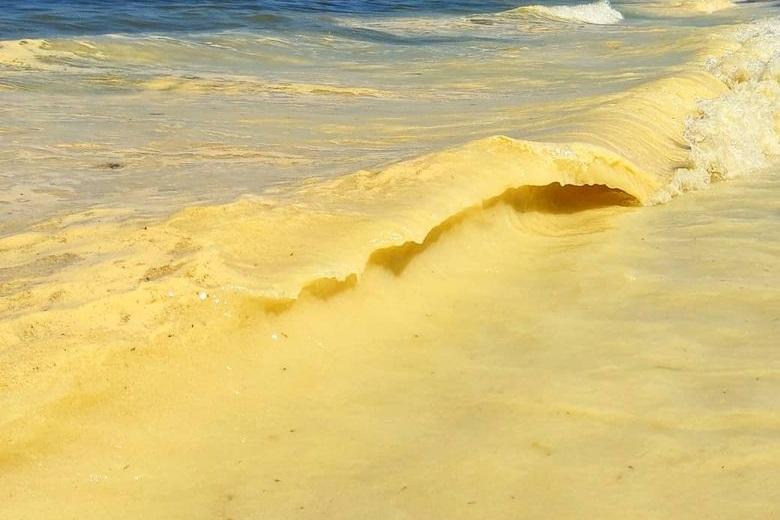The Baltic Sea has turned yellow, a resident of Kaliningrad reported on Instagram. She published photos to prove it. On them, you can see that the waves rolling on the shore are really coloured bright yellow.
The author of the photo gave an explanation for this unusual phenomenon. “The yellow sea is caused by the blooming of coniferous plants, the pollen of which is deposited on the water surface. The phenomenon is transient,” she wrote.
The Baltic Sea is an arm of the Atlantic Ocean, enclosed by Denmark, Estonia, Finland, Germany, Latvia, Lithuania, Poland, Russia, Sweden and the North and Central European Plain. The sea stretches from 53°N to 66°N latitude and from 10°E to 30°E longitude.
The Kurshskaya Spit National Park spokeswoman, Olga Bolshakova, confirmed her rightness in a conversation with FAN. According to her, the Baltic Sea will very soon take its usual appearance. “This is pine dust,” she explained.
Oleg Rylkov, a senior researcher of the park, told in more detail about this phenomenon. He noted that the pollen of numerous plants that bloom in May and June settles into the sea. These include currants, rowanberries, barberry, rose hips, and conifers. “People prone to allergies may experience discomfort during this period,” his words were quoted by the publication.
When it rains, the pollen is washed out of the air by droplets and collected by water in puddles. In the beginning, it floats as a yellow coating, and then, as the water dries and filters out, it leaves yellow streaks on the asphalt and leaves. Most of the pollen is deposited on the water surface of the sea and the bay, where the fry, for which it is a valuable vitamin-protein food, grow up at this time.
